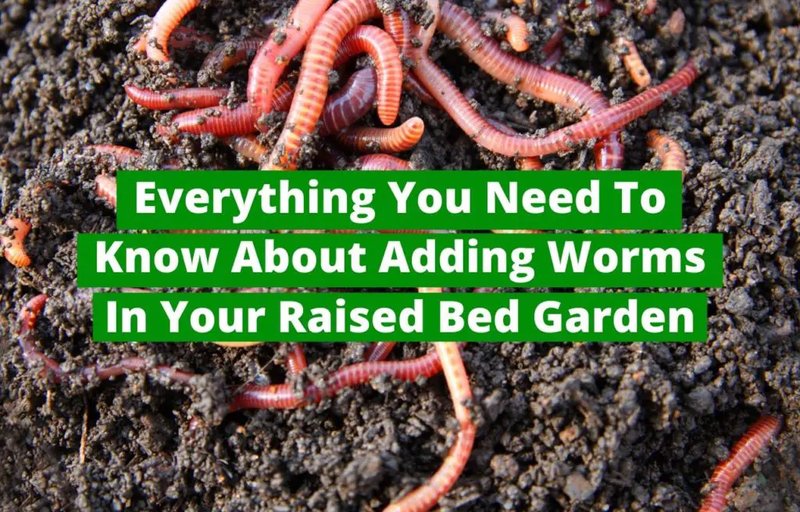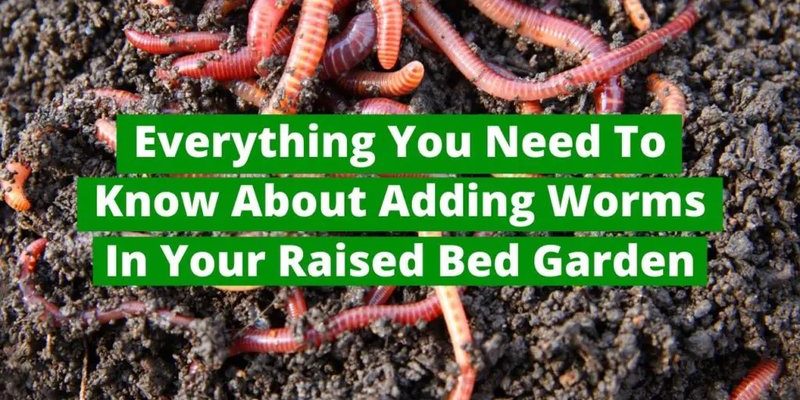
Let’s start with a simple analogy. Imagine your raised garden bed as a cozy apartment complex for plants and earthworms. The plants enjoy the sunlight and nutrients, while the earthworms help aerate the soil and break down organic matter. So, just like people need a compatible living situation, earthworms need the right conditions to thrive. In this article, we’ll explore how raised garden beds can support these amazing little critters and what you can do to make their home a happy one.
The Role of Earthworms in Gardening
Earthworms are essential for healthy soil. They improve soil structure and fertility in several ways. First, as they burrow through the dirt, they create channels that help air and water reach plant roots. It’s like they’re building highways underground!
Secondly, earthworms eat organic matter—think decaying leaves and kitchen scraps. As they digest this material, they produce nutrient-rich castings, or worm poop. This “gold” enhances your soil, nourishing your plants. So, if you want a thriving garden, you definitely want earthworms on your team.
Lastly, they help in breaking down toxins in the soil, making it a better environment for your plants. Honestly, it’s a win-win when earthworms are in the picture.
Do Earthworms Thrive in Raised Garden Beds?
So, do earthworms really thrive in raised garden beds? The answer is a resounding yes! Raised beds can provide an ideal habitat for these creatures, but a few conditions must be met.
For starters, raised beds often have excellent drainage. Earthworms prefer moist environments but can drown in waterlogged soil. The well-draining nature of raised garden beds allows them to stay damp without becoming swampy.
Additionally, you can control the soil quality more easily. By adding organic matter like compost or leaf mold, you’re giving earthworms a buffet to feast on! With these rich nutrients, they can multiply and thrive. It’s like turning your garden bed into an all-you-can-eat buffet for earthworms.
Creating the Perfect Environment for Earthworms
To help earthworms flourish in your raised garden bed, consider the following tips:
- Moisture Level: Keep the soil consistently damp, but not soaking wet. Earthworms breathe through their skin, so they need moisture without drowning.
- Organic Matter: Add compost or well-rotted manure to provide food. Earthworms will be drawn to the tasty organic matter, plus it enriches your soil.
- Soil pH: Earthworms prefer slightly acidic to neutral soil (around 6.0 to 7.0 pH). Testing your soil can give you insights on what to adjust.
By following these tips, you’ll create a friendly environment that encourages earthworm populations to grow, thereby boosting the health of your plants.
Common Challenges with Earthworms in Raised Beds
While earthworms generally do well in raised beds, there are some challenges to look out for. For example, if you overwater your garden, the soil can become too wet for the worms to handle.
Another issue might be the type of materials used in your raised bed. If you’re using treated wood, it can leach chemicals that are harmful to earthworms. Instead, opt for untreated wood, stone, or bricks.
Finally, make sure not to disturb the soil too much. Frequent digging can disrupt the earthworm ecosystem. Think of it like disturbing a cozy home; it’s not exactly what they want. If you keep these common pitfalls in mind, your earthworm friends will be much happier.
The Benefits of Earthworms in Your Garden
Having earthworms in your raised garden bed offers numerous benefits:
1. **Soil Aeration:** Their burrowing helps break up compacted soil, allowing roots to grow deeper and stronger.
2. **Nutrient Cycling:** By processing organic matter, they contribute essential nutrients back into the soil, improving plant health.
3. **Improved Water Retention:** Earthworm activity creates spaces in the soil that help retain moisture, reducing the need for frequent watering.
4. **Natural Pest Control:** The presence of earthworms can help keep certain pests away, as they create a balanced ecosystem.
Honestly, who wouldn’t want all those perks in their garden?
How to Attract More Earthworms to Your Garden
If you’re looking to boost the number of earthworms in your raised garden bed, here are some easy ways to attract them:
- Mulch: Adding a layer of organic mulch (like straw, leaves, or grass clippings) keeps the soil temperature stable and provides food.
- Cover Crops: Planting cover crops in the off-season can improve soil structure and provide a source of food for earthworms.
- Avoid Chemicals: Steer clear of synthetic pesticides and herbicides that can harm earthworm populations.
By creating a welcoming atmosphere, you’ll find that your garden flourishes, thanks to the help of these little underground champions.
So, do earthworms survive in raised garden beds? Absolutely! With the right conditions—like good moisture, rich organic matter, and minimal disturbances—earthworms can thrive and dramatically benefit your garden. They help create a vibrant ecosystem, enhancing soil health and plant growth.
Next time you’re tending to your plants, remember the important role these squirmy little helpers play. By caring for them, you’re also nurturing your garden! So, go ahead and create a beautiful home for earthworms and watch your garden flourish. Happy gardening!

